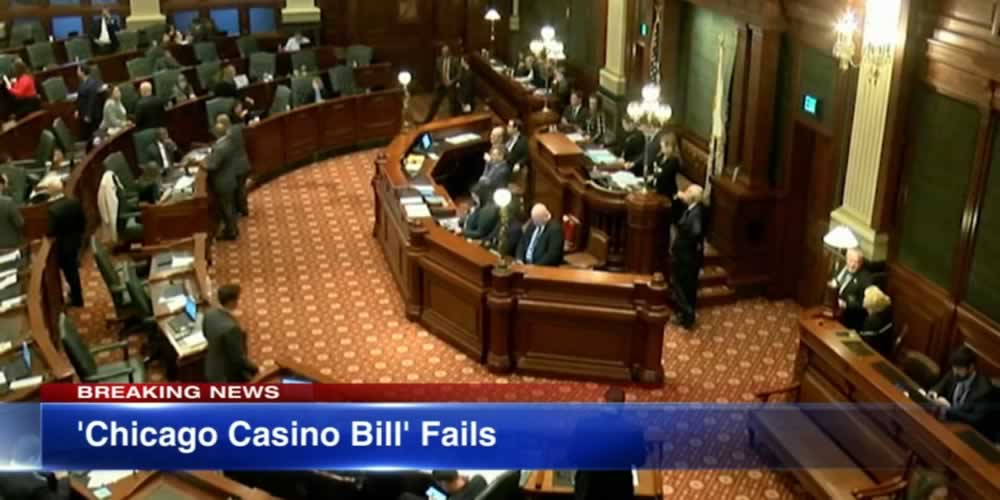Chicago Casino Bill Fails To Gain Support In Fall Veto Session

- The Chicago casino bill set out to lower the 72% tax rate for a gaming venue in the city.
- Opponents said that passing the bill may have lowered funds for the state’s infrastructure plan and slow the rollout of other casinos.
- The issue will likely come back during the 2020 legislative session.
SPRINGFIELD, Ill. – Chicago Mayor Lori Lightfoot came back from her visit to the capital empty-handed and unable to get enough support from House Democrats to pass a Chicago casino bill during the legislature’s six-day fall session.
“We had a short window here and a lot of moving parts,” said Rep. Bob Rita, the House Democrats’ lead negotiator on gambling issues to the Chicago Tribune.
Lightfoot was seeking to pass a measure that would lower the 75% tax rate a new gaming venue in the city would have to pay. During the Summer, a consultant told Lightfoot that the current tax structure is ‘very onerous’ and not financially feasible.
Placing a casino in the state’s largest city was part of Illinois Governor J.B. Pritzker’s “Rebuild Illinois’ infrastructure plan. Taxes collected from the city are going to attribute to the $45 billion that were intended to go towards that plan.
During the six-day legislative session, opponents feared that passing Lightfoot’s bill may slow the roll out of other casinos in the state and also the launch of legal sports betting in Illinois.
Instead, lawmakers decided to pass a bill that requires the applicants hoping to open casino-style gaming at horse racing tracks to send in fingerprints.
“While we are disappointed that a much-needed fix to the gaming bill won’t be made during this compressed veto session, the Chicago casino is still very much in the sightline thanks to the progress we’ve made with our state partners,” said Lightfoot in a statement.
The issue will likely be tackled during the spring 2020 legislative session when there is more time. She will also have more people by her side to help with passing new legislation.
“The city of Chicago has not approached me once – not a phone call, not an email, not a meeting – to talk about the Chicago casino,” said Rep. Tim Butler, the lead gambling negotiator for House Republicans. “I think what you’ve heard our folks say is, ‘We’re willing to help.’ We want a Chicago Casino.”
